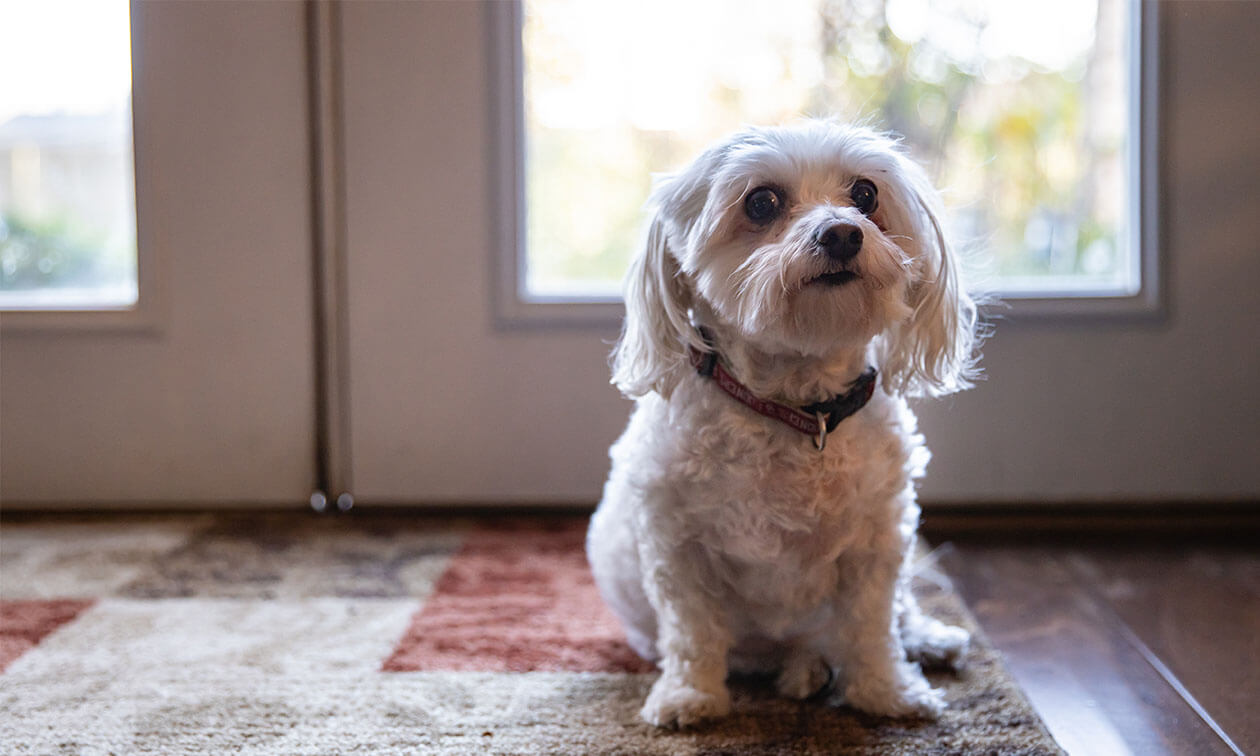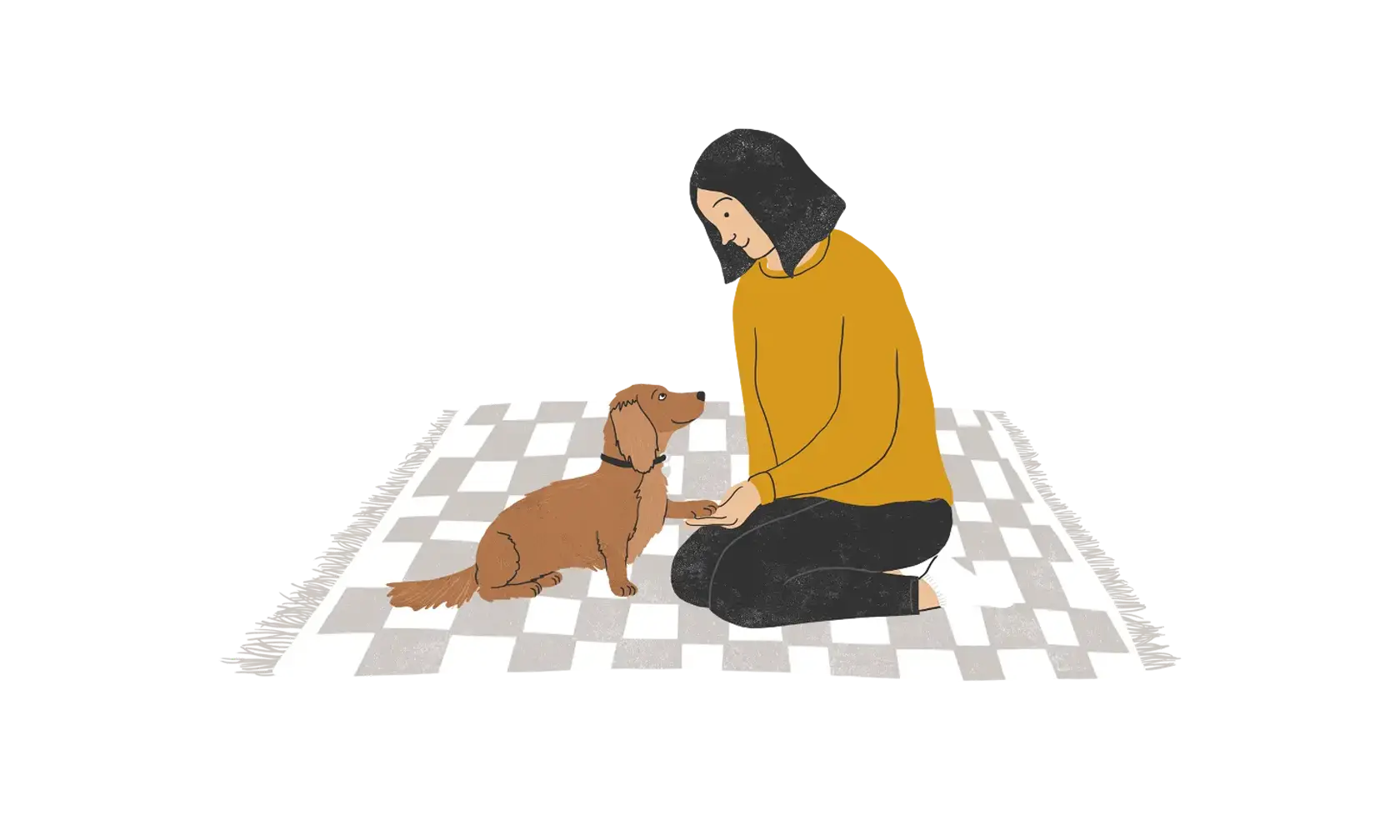Have you noticed your dog doing the bootie scootin’ boogie on the grass or, worse yet, your carpet? They aren’t doing it to impress you with their dance moves. Something is going on that needs your attention.
There are different reasons why dogs scoot. Understanding those reasons, some of which can be health-related, will help you solve the issue faster and provide your pup with much-needed relief.
Why Do Dogs Scoot?
While it can be amusing to watch dogs drag their backend on the ground, some reasons dogs scoot aren’t funny and require veterinary care.
Dogs scoot for various reasons, such as:
- Anal gland issues
- Matted hair
- Grooming
- Foreign objects
- Intestinal parasites
- Allergies
- Gastrointestinal issues
- Neurological issues
To understand dog scooting, it’s best to keep track of their behavior and take your dog to your veterinarian so they can determine the cause and resolution.
How To Resolve Dog Scooting
To help stop dog scooting, the cause needs to be treated and managed. Keep in mind your dog can have more than one trigger, such as allergies and anal gland issues.
Anal Gland Issues
This is often the most common reason for scooting. Overly full anal glands, infections, impactions, abscesses, or rupture of the anal gland can lead to discomfort and irritation at your dog’s backend. As many as 15% of dogs have anal gland disease.1
If you suspect your dog is having anal gland issues, have them evaluated by a veterinarian quickly. If left untreated, infected or impacted anal glands can rupture, causing your dog further discomfort and possible surgery.
To prevent further anal gland issues in the future, it’s important to determine any underlying causes and have them treated.
Increasing the amount of fiber in your dog’s diet will help make their stool firmer and allow the anal glands to express on their own. There are products made specifically to address anal gland issues.
Maintaining your dog at their ideal weight, with proper diet and exercise, is also beneficial to help the anal glands express naturally.
Some dogs need to have their anal glands expressed regularly to help prevent overfilling or impaction. Consult with your veterinarian to set up a schedule.
Matted Hair
It’s common for dogs with medium or long hair to get it matted near their rump. The mats can cause pulling and irritation, causing dog scooting. Additionally, debris such as grass, sticks, or even poop can get stuck in the matted hair causing more scooting.
For dogs with medium or long hair, regularly check their entire backend for mats or debris tangled in the hair. Regular brushing and trimming help.
Grooming
Several things related to grooming can cause a dog to scoot. Some perfumes, sprays, and shampoos can cause irritation to the skin on their bottom or under the tail. If they were trimmed with clippers too closely, they may have clipper burns or tiny nicks on their bottom skin. Certain brushes, such as slickers, can irritate the skin if not used properly. If the hair is matted on the rump, the de-matting process can cause skin irritation.
Groomers are taught to express anal glands as part of the grooming service. Repeated expressing can cause injury to the anal glands. It is safest to have a vet express them and not your groomer.
Always check your dog’s skin for clipper burns, tiny nicks, or skin irritation following a grooming. If noted, consult your veterinarian to determine how to treat the issue.
Ingesting Foreign Objects
Dogs who like to eat grass or other foreign objects can have issues completely passing them. They will try to relieve the discomfort by dragging their rump on the ground.
It’s important to prevent your dog from consuming foreign objects, even something as simple as grass. This will help keep things flowing properly through the digestive tract. If you find a foreign object hanging out of your dog’s anus, consult with your veterinarian before attempting to pull it out. Pulling can do serious damage in some cases.
Intestinal Parasites
Common intestinal parasites, like roundworms that look like spaghetti, or tapeworms that look like grains of rice, can cause irritation and itching around a dog’s rump.
Keep your dog on heartworm prevention that also prevents and treats intestinal parasites. Use flea and tick prevention regularly and have your veterinarian regularly check for parasites.
Allergies
Both environmental and food allergies can cause skin irritation and itching. Food allergies can also cause gastrointestinal issues.
If you suspect your dog has allergies, consult with your veterinarian.
Gastrointestinal Issues
Loose stool can irritate the skin on their bottom. They can also get inflammation that makes them scoot when they have diarrhea.
If your dog has diarrhea, then you should call your veterinarian as they will need treatment and a special diet.
Constipation is very uncomfortable and can lead to lethargy and loss of appetite. It’s particularly concerning for senior dogs. Seek veterinary care if you suspect your dog is constipated and encourage increased water intake. If your dog goes more than 72 hours without pooping, talk to your veterinarian right away.
Neurological Issues
Cognitive decline in senior dogs or other neurological issues can cause dogs to scoot their bottoms on the ground.If you’ve noticed changes in your senior dog’s behavior, such as vocalization, restlessness, sleep-wake cycle disturbances, etc., consult with your veterinarian because your dog may have canine cognitive dysfunction. There are different management options, such as medication, specialty diets, and supplements, that can help improve your dog’s quality of life. A referral to a neurologist may be recommended.
ZPC-04481
- A Cross-Sectional Study on Canine and Feline Anal Sac Disease. National Library of Medicine. https://www.ncbi.nlm.nih.gov/pmc/articles/PMC8749694/. Accessed January 29, 2024.



